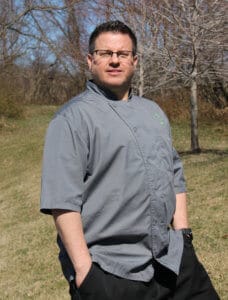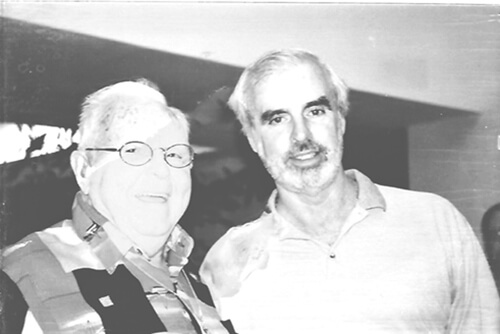Clinically Speaking
National Nutrition Month: Eating right to stay sober
Substance use can have a serious and long-term negative effect on our health and nutrition, as it can disrupt physiological functioning and impair the body’s ability to receive proper nourishment.
March is recognized as National Nutrition Month, and it’s a great opportunity to look at the critical role proper nutrition plays in helping those in recovery to heal.
 Alcoholism is the only disease known to affect each and every system and cell within the body. Excessive alcohol use interferes with the breakdown and absorption of nutrients due to damage of the stomach lining and digestive enzyme deficiencies. It can also significantly harm the pancreas and liver, which aid in our digestion.
Alcoholism is the only disease known to affect each and every system and cell within the body. Excessive alcohol use interferes with the breakdown and absorption of nutrients due to damage of the stomach lining and digestive enzyme deficiencies. It can also significantly harm the pancreas and liver, which aid in our digestion.
Opioid withdrawal significantly impacts our appetites. The typical symptoms that accompany it can also deplete the body of nutrients, cause electrolyte imbalances, and lead to dehydration.
The use of stimulants like cocaine and amphetamines cause a decrease in appetite as well. Long-term use can result in severe weight loss and malnutrition, a suppressed immune system, heart rhythm disturbances, impaired healing of wounds, and more.
On the other hand, marijuana use often increases users’ appetites, particularly for junk food, which typically does not contain vitamins and nutrients essential to our good health. This can also lead to weight-gain, lethargy and a generally unhealthy lifestyle.
“Taking care of oneself by eating a healthy diet, getting adequate rest and physical activity, and paying attention to medical problems often falls by the wayside when preoccupied with the use of alcohol and/or drugs.” Ashley Sr. Vice President & Chief Medical Officer, Dr. Bernadette Solounias remarked. “Our food service, with oversight of a registered dietician, provides healthy meal choices. Those with special dietary needs such as diabetes, cirrhosis, and malnutrition meet with the dietician to receive guidance on how to choose foods for their medical condition and the food service staff provides what is necessary.”
Executive Chef, Food Services Director, David Taddeo, echoed these thoughts. “The Ashley Dietary Department provides a high quality dining experience that offers healthy options at every meal.” Taddeo said. “Our menu ingredients are balanced with hydroponic lettuces and microgreens, fresh fruits and vegetables, local fresh meats, and natural fresh seafood. The aim of our well-planned menu selections is to nourish and build a sense of well-being, providing a foundation for patient success in recovery.”
Here are a few simple tips to help those in recovery to stay on track and decrease the risk of relapse:
- Eat more complex carbohydrates – These will provide steady, long-lasting energy without the spike and crash of simple carbs. Foods like green vegetables, whole grains and foods made from them, and beans, lentils and peas are great sources of complex carbs.
- Monitor sugar intake – sweets create a release of dopamine, which can trigger responses and behaviors that are risky, especially for those in early recovery.
- Avoid processed and fast-foods – These lack nutritional value and often contain unhealthy levels of fat and other chemicals.
- Eat more protein and fiber – Fiber helps regulate our digestive systems and helps us feel full, while protein helps build muscles weakened by malnutrition.
- Eat regular, small meals – This helps keep our blood sugar levels stable, decreasing the cravings for unhealthy snacks between meals.
Lastly, GET MORE EXERCISE! Nothing heals the damage done by substance use and poor nutrition better than a regular exercise regimen. A finely-tuned body processes nutrients more efficiently, is less stressed and feels great! Fitness and nutritional professionals should be consulted for advice about what works best for each individual.
Development
Ashley’s Development Department has been on the road planning several major fundraising events. Nearly 300 alumni, donors and friends gathered at our first major event of the year on February 22nd. The beautiful Washington DC Four Seasons hotel played host to our 4th Annual DC Gala, sponsored by the Ashley DC Leadership Council.
The event was a celebration of women in recovery, raising funds for the project to create the new Women’s Solarium at Ashley. This was also our public introduction of new Ashley President and CEO, Becky Flood, who spoke passionately about her memories of Father Martin and about how we are all working together to help save more lives.
Ginny Grenham was presented with the 2018 Michael K. Deaver Award for her selfless work in the DC recovery community. Ginny is President of a communications and public affairs consulting company and works with corporations, government leaders and non-profits, creating innovative strategic partnerships. She is also involved in a variety of civic and community efforts to address mental health and addiction, obesity, and education / the arts, especially for underserved communities.
The Michael K. Deaver Award is given each year to an individual in the DC region that exemplifies the best that a life in recovery has to offer. Ginny Grenham has helped “hundreds and perhaps thousands” find their path to hope and healing and could not be more deserving of this recognition.
In other fundraising news, we are thrilled to announce that our keynote speaker at our 2018 New York Leadership Council Dinner will be legendary pro football Hall-of-Famer and broadcast personality, Cris Carter. Cris is the co-host of First Things First, a sports-oriented daily talk show on Fox Sports 1. Cris speaks openly and eloquently about his personal struggles with substance use, those in his life that helped him turn the corner, and his program of recovery that has changed his life.
The New York Dinner will be held at the Yale Club in midtown Manhattan on Thursday, April 19, 2018. Sponsorship opportunities and tickets are available now – visit our event web page at www.AshleyTreatment.org/NY or by email at Development@AshleyTreatment.org for more information.
Ashley Staff Spotlight: David Taddeo, Executive Chef, Food Services Director

This month, we cast the Staff Spotlight on Executive Chef, Food Services Director, David Taddeo. Dave and his team prepare between 400 – 600 meals every day, nourishing patients and staff members alike with a variety of delicious and nutritious fare. We sat down with Dave and talked with him about his time at Ashley:
What drew you to work in this field?
My interest in cooking was born in the kitchens of my aunts, who prepared large Italian family dinners every Sunday during my youth. I loved to be in the kitchen with them, watching as they almost effortlessly created the most delicious dishes on earth! My first experience in the culinary field was as a high school student, working at restaurants in Aberdeen and Bel Air, MD. I worked my way up from a dishwasher to prep cook then to first line cook. After high school, I attended Culinary School in Atlantic City, NJ. Although I have worked in many facets of the food service industry over the past 35 years, I have always maintained my love of cooking − the creativity, instant feedback and the physicality of working with my hands.
What drew you to work at Ashley?
I have known about Ashley since the late-eighties, when as a food salesmen, my route included stops to meet with Ashley’s first chef, Mike. As the years went by, I got to know the lineage of chefs that have passed through here. Ashley had always held a mystique and a feeling of heritage for me. I entered recovery in 2006, and after a few years and some life changes, I wanted to get back to my passion and roots − cooking and working with others. God works in mysterious ways, and one day I stopped at Ashley to drop off a food sample and spoke with the chef, who mentioned that he was looking for an assistant chef. I said, “That’s me!” I dropped off my resume the next day.
What is the most rewarding part of your job?
There are two parts of my job that are extremely rewarding. The first is working with my staff and encouraging and coaching them to strive to better themselves and to always remember to give back to others. We are a true team; a family. That, I hope, will be my legacy at Ashley. Second, is working with the patient community, supporting the Ashley mission of healing and recovery by providing not only nurturing meals, but helpful and compassionate service. In us, the patient community looks for hope, and in turn we are reminded of how fortunate we are, especially those of us in recovery ourselves.
What do you feel makes Ashley special?
What makes Ashley special is the sense of community that the facility and surroundings engender, the traditions and ideals of our founders, and the caring and hard work of the entire Ashley staff. I am especially proud of how the kitchen staff understands the Ashley mission and positively impacts the process of recovery with their friendly and generous attitudes. For me personally, what makes Ashley special is that it allows me to be a part of giving another human being a mustard seed of HOPE−and there is no other feeling like that in the world!
Ashley Campus Virtual Tour
Have you visited our tranquil campus located on the shores of the Chesapeake Bay? Tours may be arranged through your Clinical Outreach Representative. In the meantime, take our virtual tour and sample some of our campus features and amenities.




